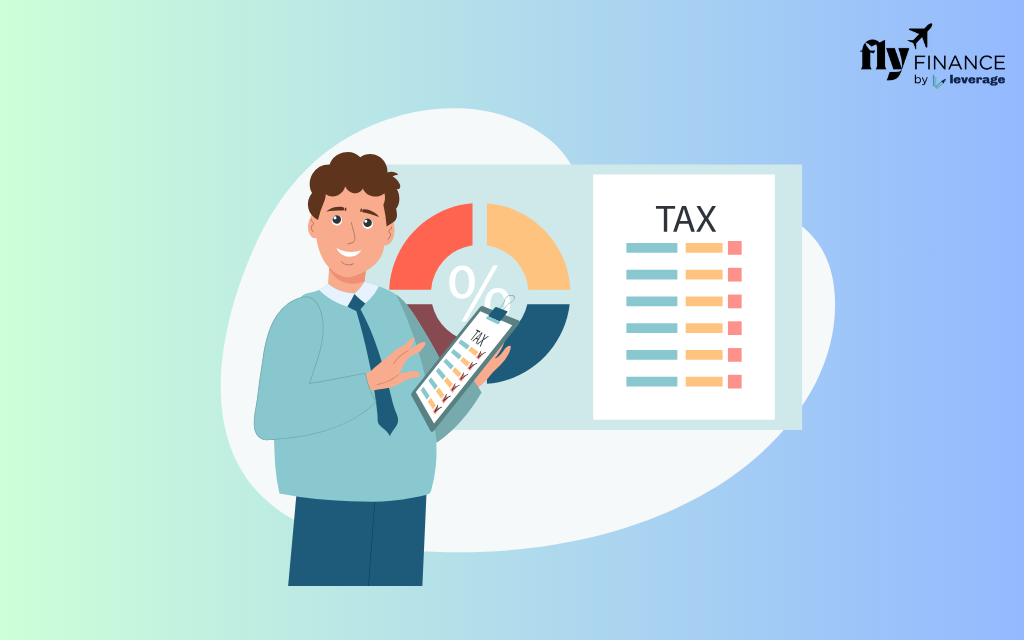Education is an investment for a brighter and better future, yet its cost can be substantial. To ease this financial burden, governments often offer tax benefits. One such benefit is the deduction provision under Section 80E of the Income Tax Act, specifically tailored for education loan repayments. This deduction not only assists in managing the financial strain but also incentivises higher education pursuits.
In this comprehensive guide, we will look into the details of Income Tax Rebates on Education Loans, explore eligibility criteria, and much more.
Table of contents
Understanding Education Loan Tax Benefits
Education loans have become instrumental in fulfilling aspirations for higher studies. Section 80E of the Income Tax Act was introduced precisely to ease the financial burden incurred through these loans.
This section allows for a deduction of the total interest paid on the education loan from the taxable income. This benefit is also offered to encourage borrowers to take an education loan. But, to qualify for the same, individuals must fulfil the eligibility criteria for education loans.
When you apply for education loans, only the interest paid is allowed as a deduction and not the principal amount. This deduction is available for a maximum of 8 years or till the interest is paid, whichever is earlier.
Note: To claim a deduction for your education loan, you must receive a certificate from your bank or financial institution showing the distribution of the amount repaid as principal and interest amount.
Also Read: If you are curious to learn about the terms associated with the transfer of money in a foreign market, check this blog on What is Remittance: Types, Modes & Tax Deduction.
Qualifying Criteria for Tax Rebate on Education Loan
For tax exemption on education loans under Section 80E, certain criteria must be met. This includes defining eligible courses and institutions, determining the borrower’s eligibility (student, spouse, or guardian), and understanding the restrictions on loans and their repayment structures. Meeting these criteria is pivotal in availing of the tax rebate efficiently.
- Either the parent or the child can avail of this tax benefit, depending on who pays the education loan.
- The tax benefit is only applicable if you take an education loan from financial institutions, and not from friends, family, and relatives.
- The education loan must be taken for higher studies to be eligible for deduction under Section 80E.
Calculating Tax Rebates on Education Loans
The tax rebate is only applicable on the interest rate paid and not the principal amount.
Obtain the interest certificate from your lending bank, which specifies the interest paid during the financial year. This certificate is crucial for accurate calculation.
Use the formula to determine your student loan tax deduction–
| Deduction = Total Interest Paid during the financial year. |
There’s no upper limit for the deduction amount, which means that the entire interest paid can be claimed.
For instance- your gross taxable income is 7 lakhs INR after all other deductions and you paid 2.5 lakhs INR as the interest on the education loan during the financial year. So, your total income to calculate income would become 4.5 lakhs INR and taxed accordingly.
Also Read: If you have an existing education loan and are overburdened by it, consider learning about restructuring your loan. Check out the Benefits of Education Loan Restructure.
Claiming Tax Rebates on Education Loan
To claim tax rebates on education loans, borrowers of the loan must fill out Form 1 while filing the income tax returns. They should report the details of education loan interest under Section 80E.
The next step is to provide the loan details and furnish necessary details like the name of the lender, the amount of interest paid, and the loan’s purpose (higher education). Now, in the ‘Income Details’ section of ITR Form 1, navigate to ‘Deductions’ and claim the deduction under Section 80E. Enter the eligible amount of the interest paid during the financial year.
Ensure that all the details are accurately entered before submitting the final details. By following these steps accurately and reporting the eligible interest paid during the financial year, individuals can claim income tax rebates on education loans.
If you face any difficulties in doing this all by yourself, you can simply have a word with your CA, and they can help in claiming the tax rebate.
FAQs on Tax Rebate on Education Loan Under Section 80E
Yes, the interest you pay on an education loan is entirely tax-free for eight years, as you can claim tax deductions against it.
The tax benefit on Education Loans under Section 80E is limited only to the interest component of the loan. If a borrower takes a top-up loan, then they will be eligible for the extra interest payment. There will be no tax benefit on the principal amount in case of the initial Education Loan or the top-up Education Loan that you have availed.
Income Tax Rebate on Education is available for a maximum of 8 years. Most borrowers prefer to use this entire 8-year repayment period to repay their education loan.
The maximum education loan that you can avail of is 1.25 crore INR to study in India and 1.50 crore INR to study abroad.
There is no maximum limit under Section 80E. Borrowers can claim the actual interest paid.
Understanding education loan tax rebates can significantly reduce financial burdens. Knowing about such benefits, meeting eligibility criteria, and strategizing repayment can lead to substantial tax savings. By leveraging these benefits effectively, individuals can embark on educational pursuits with greater ease and financial stability.
To know more about the loan application process, the best international bank accounts for students, forex and banking experience for global students or international money transfers, reach out to our experts at 1800572126 to help ease your study abroad experience.
| Related Blogs |
| Airport Currency Exchange Rate |
| IDFC First Bank Forex Card |
| Best Banks in India for Inward Remittance |
Follow Us on Social Media





























